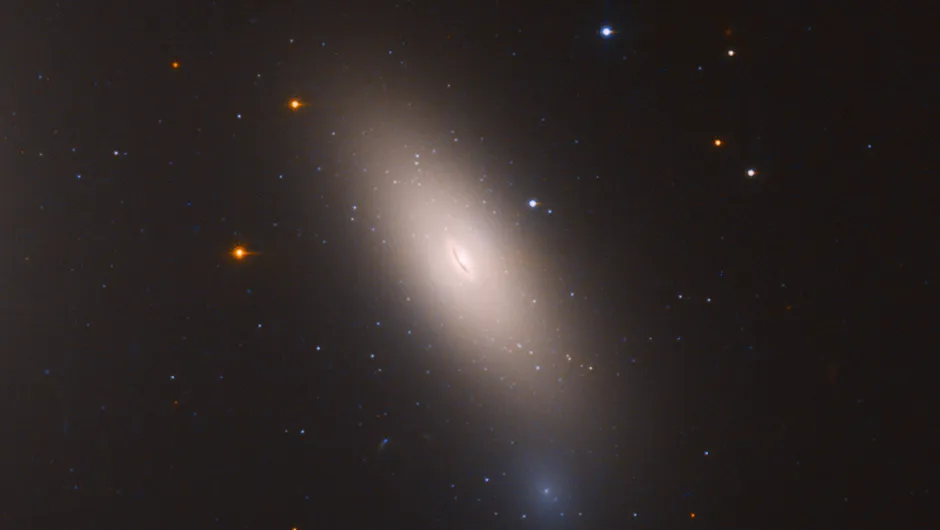NASA's Hubble Space Telescope is about to help uncover the mysteries of an ancient relic – a galaxy frozen 10 billion years in the past.In the past, the ancient galaxy NGC 1277 produced stars 1,000 times faster than currently seen in the Milky Way, but then this suddenly stopped.
The existing stars aged, turning it into a ‘red and dead’ galaxy.
Usually, such red and dead galaxies are very far away, where their light dates from the early Universe and is little more than a red dot, but NCG 1277 is relatively close by in the Perseus galaxy cluster.
“We can explore such original galaxies in full detail and probe the conditions of the early Universe,” say Ignacio Trujiilo, an astronomer from the University of La Laguna, Spain.
NGC 1277 is only a quarter the size of the Milky Way, but has twice as many stars.
It could be that most galaxies started out in this compact form, but some fail to evolve any further.
Another sign of NGC 1277’s arrested development is its lack of blue globular clusters – red clusters form alongside the galaxies, but blue clusters originate in smaller galaxies that are later consumed by larger ones.

This suggests that NGC 1277 never merged with smaller galaxies, a potential clue as to why the galaxy never grew up.
The reason behind the galaxy’s failure to merge may lie in its speed and location.
The galaxy is travelling at around 3 million km per hour, meaning that it would zip past other galaxies without merging, and its location in the centre of a galaxy cluster means it is surrounded with interstellar gas that is too hot to form stars.
Another oddity of NGC 1277 is that it has a black hole that is far larger than it should be for a galaxy of its size.
This reinforces the idea that supermassive black holes grew along with a dense hub, but without an influx of outside material the stellar population's grow stalled.
“I didn’t believe the ancient galaxy hypothesis initially, but finally I was surprised because it’s not that common to find what you predict in astronomy,” says Michael Beasley, also from the University of La Laguna, Spain.
“Typically, the Universe always comes up with more surprises that you can think about.”
